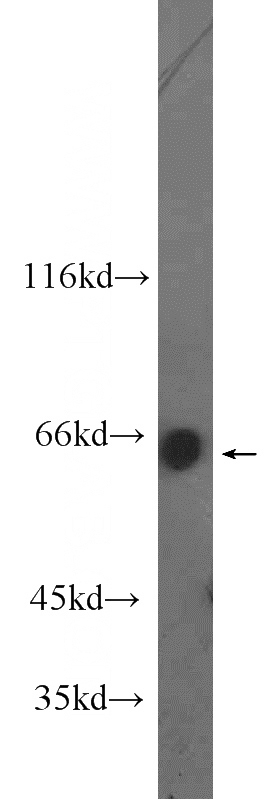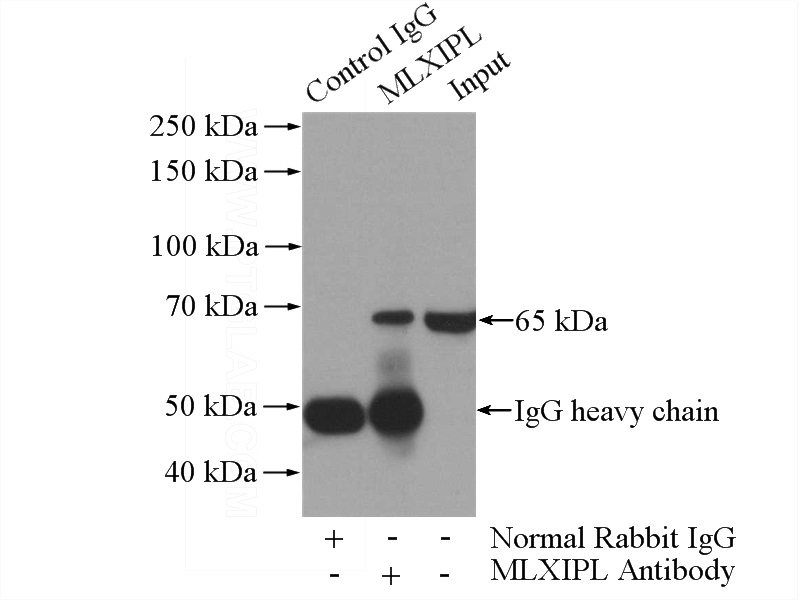-
Product Name
MLXIPL antibody
- Documents
-
Description
MLXIPL Rabbit Polyclonal antibody. Positive WB detected in HepG2 cells, HeLa cells, human liver tissue. Positive IP detected in HepG2 cells. Observed molecular weight by Western-blot: 65 kDa
-
Tested applications
ELISA, WB, IP
-
Species reactivity
Human; other species not tested.
-
Alternative names
bHLHd14 antibody; CHREBP antibody; MIO antibody; MLX interacting protein like antibody; MLX interactor antibody; MLXIPL antibody; MONDOB antibody; WBSCR14 antibody; WS bHLH antibody
-
Isotype
Rabbit IgG
-
Preparation
This antibody was obtained by immunization of MLXIPL recombinant protein (Accession Number: BC012925). Purification method: Antigen affinity purified.
-
Clonality
Polyclonal
-
Formulation
PBS with 0.02% sodium azide and 50% glycerol pH 7.3.
-
Storage instructions
Store at -20℃. DO NOT ALIQUOT
-
Applications
Recommended Dilution:
WB: 1:500-1:5000
IP: 1:500-1:5000
-
Validations

HepG2 cells were subjected to SDS PAGE followed by western blot with Catalog No:112688(MLXIPL antibody) at dilution of 1:1000

IP Result of anti-MLXIPL (IP:Catalog No:112688, 4ug; Detection:Catalog No:112688 1:1000) with HepG2 cells lysate 3600ug.
-
Background
Carbohydrate response element-binding protein (ChREBP), also known as MLXIPL, is a glucose-responsive transcription factor that has a fundamental role in the glucose-mediated induction of genes involved in hepatic glycolysis and lipogenesis. Circulating blood glucose levels affect ChREBP activity in hepatocytes largely by post-translational mechanisms that include phosphorylation-dependent subcellular localization [PMID:21665952]. It enhances expression of the liver pyruvate kinase (LPK) gene and all lipogenic enzyme genes resulting in the conversion of excess dietary carbohydrate into triglycerides that can be stored as fat [PMID:15118080]. Molecular Weight of ChREBP splice variants: 62/78/91/93 kDa.
Related Products / Services
Please note: All products are "FOR RESEARCH USE ONLY AND ARE NOT INTENDED FOR DIAGNOSTIC OR THERAPEUTIC USE"
